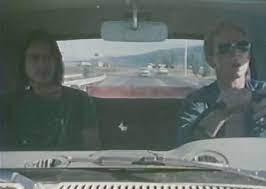Stjernekrigen
There is
something immensely silly about writing a review of the original Star Wars
movie, the one commonly known as Episode IV - A New Hope. I bet there are hundreds,
if not thousands of such reviews around. Everybody and their mother have
watched it and if you have not, I wonder what you are doing on a movie blog in
the first place. So, I will do it a bit differently and talk about my personal
experience with Star Wars.
I was too
young to watch Star Wars in the cinema. In 1977 I was barely 4 years old, and
it would be another few years before I would start going to watch children’s
movies in the cinema. I did see a picture recently of people queuing for Star Wars
in 1977 on Facebook and I found it oddly fascinating. Back then in my early
childhood people really looked different, yet Star Wars feels, in my humble
opinion, fresh and modern even today.
My first
experience with the franchise was the toys. It was all the rage, but
ridiculously expensive. It was that or Lego, but awesome as those spaceships
were, you could not actually build anything. They could blow up though and they
did that very well. The coolest friends were those with a lot of Star Wars toys.
Many years later, when I got a son myself, he got an awesome Y-Wing bomber in
Lego. He was of course way too young for that, but for his father, building it
was pure bliss.
Only after
the release of episode VI did I start watching the actual movies, but then I
could not stop. I have no idea at all how many times I watched them, especially
episode IV. Not in the cinema though, that train had passed, but we had some
very worn VHS tapes copied from television.
I guess I
am one of the purists when it comes to the Star Wars universe. As much as I
adore the early three movies, I have never come to terms with the prequels or
the countless Disney installations for that matter. There is of course the
commercial exploitation element souring things, but if I really should be
honest, it is a matter of design. I love the angular and brutalistic design of
the early movies. The have knobs and wires and bolts and feel like they were
built of iron plates on a shipyard. There is a texture and substance to them
that probably also have something to do with the model work rather than the CGI
used in a later age. The pace is also slower and there is a buildup that has
all but gone. Rewatching Episode IV for the first time in some years I am
struck with how slow the action actually is until Falcon lands on the Death
Star. Sure, there are light saber fight and blasters being fired and an awesome
fighter attack on the Death Star, but it is not a start to finish adrenaline
rush. Maybe I am just getting old, but it feels like my pace.
Talking
about that attack run, our cinema had a small arcade of video games and the
greatest one was a game on that fighter attack. I spent a fortune on that…
Star Wars
is the first movie on the List where I do not feel like I am watching an old
movie. To me, it is my generation of movies, a modern movie if you will, and I
think that marks some sort of turning point on this project. The beginning of a
different era. Perhaps also in a real sense. At least in the science fiction
genre there is a before and after Star Wars. The clunky, clumsy and cheap science
fictions were now a thing of the past and the genre would now receive the big
budgets it takes to make truly impressive movies. Most of modern science
fiction and probably blockbuster movies in general owe a debt to Star Wars. Not
to mention Harrison Ford.
For my
rewatch I picked the original theatrical version rather than the modernized one
from the nineties and it worked just as well as always.



